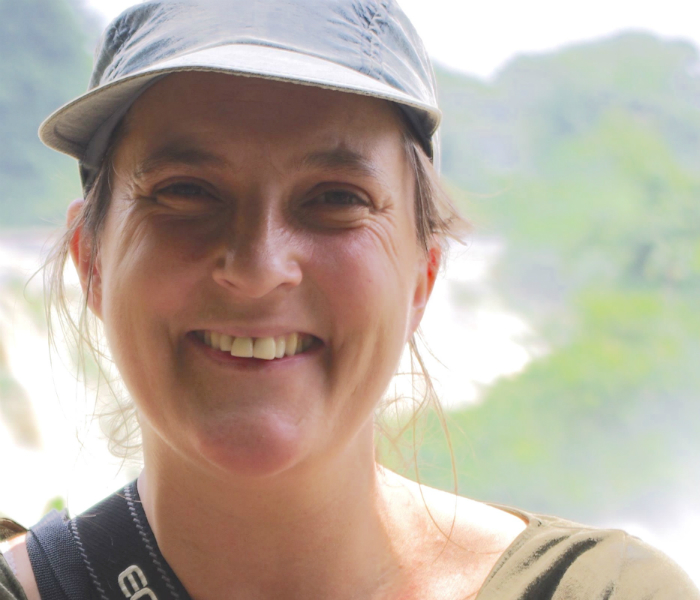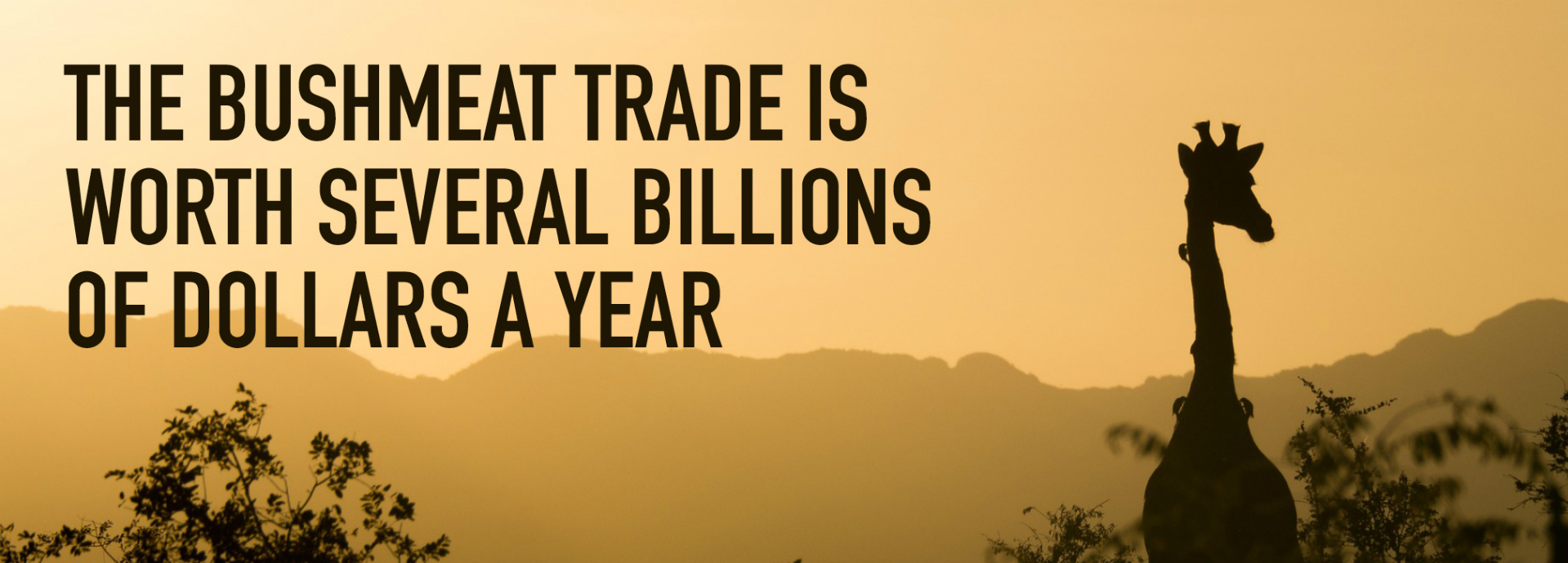The University of Stirling will receive around £390,000 as part of a new multi-million pound project aiming to make trade a positive force for both marginalised people and nature conservation.
Dr Katharine Abernethy, of the Faculty of Natural Sciences, will research the social, economic and environmental impacts of trade in wildlife and wild meat in Central Africa as part of a new project funded by the UK Research and Innovation (UKRI) Global Challenges Research Fund (GCRF).
Dr Abernethy said: “The harvesting of wildlife for subsistence is a critical part of rural food security in Central Africa and has been practised for millennia. However, hunting is sliding into unsustainability as illegal trade attracts hunters into commercialising meat. Trade in wildlife products is increasing demand, threatening species survival and often reducing the food security of local families as meat is traded to urban centres.
“Working alongside our long-term partners, the Institute for Tropical Ecology Research in Gabon, we look forward to carrying out new research into how rural households benefit economically from the wild meat market – but also how they may lose out socially and environmentally.
“Our research is designed in collaboration with our Gabon government partners, ensuring that the results will be used in improving management of hunting and trade – and ultimately securing both wildlife and rural wellbeing in the region.”
The trade of wild species and crops has incredible potential for creating long-term jobs and boosting economic growth, particularly in low and middle-income countries. However, intensive use causes entire populations of animals or plants to crash, while demand for agricultural land for crops removes natural habitat for wildlife. This degradation of nature has adverse consequences for marginalised people and decreases the likelihood of the world meeting its ambitions, including the Sustainable Development Goals and the Aichi Biodiversity Targets.

Reader, Faculty of Natural Sciences
Our research is designed in collaboration with our Gabon government partners, ensuring that the results will be used in improving management of hunting and trade – and ultimately securing both wildlife and rural wellbeing in the region.
Led by the UN Environment World Conservation Monitoring Centre (UNEP-WCMC), the new project – entitled the UKRI GCRF Trade, Development and Environment Hub – is one of 12 research hubs funded by this year’s £200 million UKRI GCRF.
Over the next five years, it will trace the trade of wildlife, wild meat and agricultural goods from their origin in eight countries – Brazil, China, Cameroon, the Democratic Republic of Congo, Gabon, Indonesia, Republic of Congo and Tanzania – and then throughout the entire world.
These results will be analysed within a global modelling framework to look at different possible trade futures and how these might benefit or impact marginalised people and nature. The Hub will also consider UK trade relations and dependencies – and how future decisions can be a positive force for sustainability.
Announcing the UKRI GCRF Hubs, alongside 16 other international research partnerships, Science and Universities Minister Chris Skidmore, said: “The UK has a reputation for globally influential research and innovation, and is at the centre of a web of global collaboration – showing that science has no borders.
“We have a strong history of partnering with other countries – over 50 percent of UK authored research involves collaborations with international partners.
“The projects being announced today reinforce our commitment to enhance the UK’s excellence in innovation at home and around the world, driving high-skilled jobs, economic growth and productivity as part of the modern Industrial Strategy.”
Professor Neil Burgess, Principal Investigator for the Hub and Chief Scientist at UNEP-WCMC, said: “We are extremely excited to start work on this Hub. Trade is one of the most powerful forces of our time, with the ability to sustain global livelihoods as well as harm vulnerable people, destroy habitats and drive species closer to extinction.
“We’ll be working with over 50 amazing organisations from 15 different countries representing industry, trade agencies, academic, governments and civil society, giving us an unprecedented breadth of knowledge and experience. Together, I am confident that we can move us towards a system that supports people and the planet.”
Professor Andrew Thompson, UKRI Champion for International and Executive Chair of the Arts and Humanities Research Council, said: “The sheer scale and ambition of these Hubs is what makes them so exciting. They enable us to deliver a coordinated global response with UK researchers working in partnership with researchers, governments, NGOs, community groups and international agencies across developing countries. Each Hub has the potential to transform the quality of life for multitudes throughout the world and safeguard our planet for future generations.”
Background information
Media enquiries to Greg Christison, Communications Officer, on 01786 466 687 or greg.christison@stir.ac.uk

